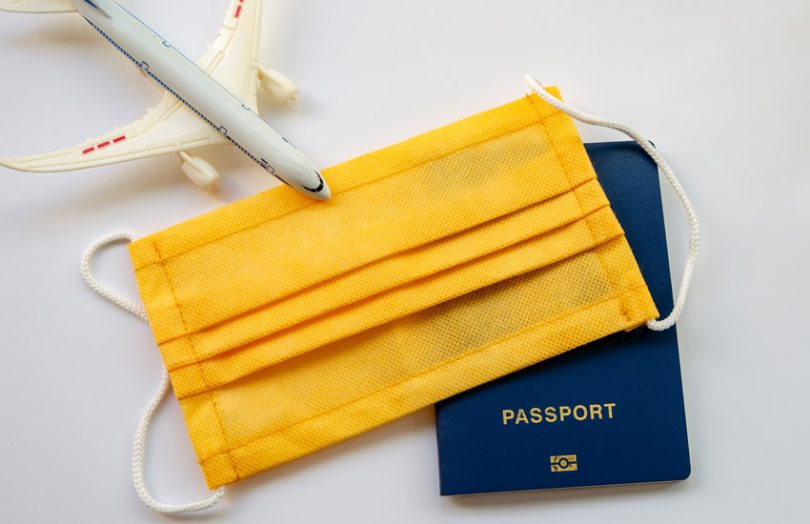Today GE Aviation announced a new blockchain solution targeted at airlines. It’s for health screening of airline staff and passengers for COVID-19 as well as ensuring aircraft are properly cleaned.
“This application addresses an urgent need in our industry to help ensure airline and airport workers have been screened for COVID-19 and that their fellow passengers have been checked,” said Andrew Coleman, chief commercial officer of GE Aviation’s Digital Group. “We need to do everything we can to instill trust and confidence in the traveling public and get the world back to work and flying again.”
Each country is coming up with COVID-19 rules for travel. GE Aviation says its solution is flexible and medical test agnostic, so it can adapt as regulations evolve. But the aim is to check compliance with health testing protocols established by airports, airlines or countries.
The company says that the personal information and test results are encrypted and access is restricted. We’ve asked for more details as this is a sensitive topic (see below).
We recently reported that GE Aviation was collaborating with food traceability firm TE-FOOD for track and trace of aviation parts. Now TE-FOOD is the partner for this health initiative.
“We were able to quickly make this available with the help of great partners and our willingness to work across industries to apply best practices to this problem,” said David Havera, GM of GE Aviation’s blockchain solutions.
“We are combining GE Aviation’s data and analytics domain expertise with the scale and secure capabilities of Microsoft Azure along with TE-FOOD’s blockchain technology and best practices from the food industry to create a product that brings the best scalable solution to the aviation industry. This offering gives control to the passengers by allowing them to view the cleaning history of the aircraft. Airlines gain more control by being able to record events as they occur, which enables pandemic containment and auditable records.” (emphasis from GE).
The project involves a revenue share with TE-FOOD.
Health certificates and immunity passports are controversial
What might on the face of it seem like a good idea, is a very sensitive topic when it comes to privacy.
For example, ID2020, the identity non-profit which aims to protect privacy, had one of its advisors resign over the topic and has been the target of one of the many COVID-19 conspiracy theories related to Bill Gates. The anti-vaccine movement wove a story that nanoparticles or microchips could be injected into people as a Coronavirus vaccination that becomes a global surveillance scheme. While the conspiracy theory has been debunked, a Yahoo / YouGov poll found that 28% of U.S. adults believe the story and a further 32% aren’t sure.
There are several other organizations targeting the same area. For example, there’s the COVID Credential Initiative, Quantum Materials Corp and numerous others.






